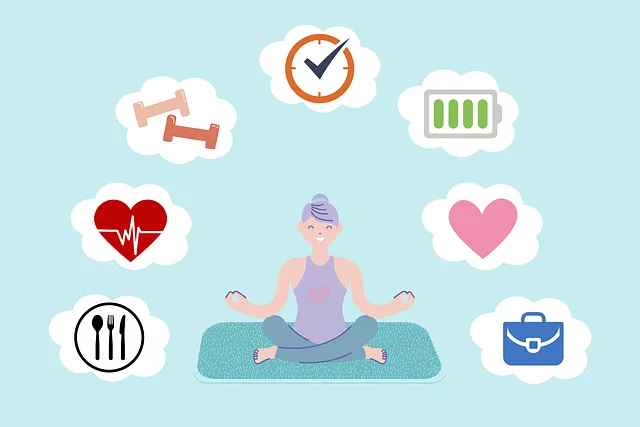Navigating Mental Health Crisis: Kaiser Permanente’s Phone Number & Effective Access
The Kaiser Permanente mental health department in Parker provides vital support through its dedicate…….
In the realm of healthcare, particularly within the mental health sector, innovative approaches are constantly sought to improve access, quality, and outcomes. One such approach that has garnered significant attention is the implementation of dedicated mental health telephone lines, with a notable example being the Kaiser Permanente Mental Health Department Phone Number Parker. This article delves into the intricacies of this initiative, exploring its definition, global impact, economic implications, technological advancements, policy framework, challenges, successful applications, and future prospects. By examining these aspects, we aim to provide a comprehensive understanding of how such telephone services contribute to the mental well-being of individuals and communities worldwide.
The Kaiser Permanente Mental Health Department Phone Number Parker (hereafter referred to as “the Line”) is a specialized, confidential telephone service designed to offer immediate support and guidance for individuals experiencing mental health crises or seeking emotional assistance. It operates 24 hours a day, 7 days a week, ensuring accessibility during times of emergency or when traditional therapy sessions may not be available.
Key components of the Line include:
The concept of dedicated mental health telephone lines emerged in the mid-20th century as a response to growing awareness about the importance of early intervention and accessibility in mental healthcare. Over time, these services have evolved, incorporating advanced technologies and evidence-based practices to enhance their effectiveness.
The Kaiser Permanente organization, known for its comprehensive healthcare services, introduced its Mental Health Department Phone Number as part of its commitment to improving community mental health. By assigning a specific phone number, they aimed to simplify access to professional support, especially for individuals who might face barriers in accessing traditional therapy or crisis intervention services.
While the Line is specifically associated with Kaiser Permanente, similar telephone-based mental health services have gained traction worldwide, reflecting a growing recognition of their value. Many countries have implemented dedicated hotlines for suicide prevention, crisis intervention, and emotional support, often integrating them into existing healthcare systems. This global trend underscores the universal need for accessible, timely mental health support.
The impact of mental health telephone lines varies across regions, influenced by cultural attitudes towards mental illness, healthcare infrastructure, and economic factors. In developed countries with robust healthcare systems, these services often experience higher utilization rates due to increased awareness and affordability. For instance, the UK’s Samaritans service has been a cornerstone of crisis support, handling millions of calls annually.
In contrast, developing nations might face challenges in implementing such initiatives due to limited resources, inadequate mental health infrastructure, and differing cultural norms surrounding mental well-being. However, even in these regions, innovative partnerships between non-profit organizations and healthcare providers have led to successful pilot projects.
A prominent global trend is the integration of technology into mental health telephone services. This includes:
Research suggests that mental health telephone lines significantly improve access to support, leading to reduced wait times for intervention and better crisis management. A study by the World Health Organization (WHO) found that hotlines contribute to a 15-20% decrease in suicide rates among targeted populations. Additionally, these services often serve as a valuable first step towards seeking more extensive mental health care, with many individuals transitioning to long-term therapy or support groups.
The global mental health telephone service market is witnessing steady growth, driven by increasing demand for accessible mental healthcare solutions. According to a report by Grand View Research, the market size was valued at USD 2.8 billion in 2021 and is expected to expand at a CAGR of 7.5% from 2022 to 2030. This growth is attributed to rising mental health awareness, technological advancements, and increasing government support for such initiatives.
From an economic perspective, these telephone services offer significant cost savings in the long term. By providing timely intervention during crises, they can reduce the need for costly emergency room visits, hospitalizations, and repeat therapy sessions. A cost-effectiveness analysis published in JAMA Psychiatry highlighted that investment in crisis hotlines leads to substantial healthcare system savings while improving patient outcomes.
Mental health telephone lines contribute to economic systems by:
Artificial Intelligence (AI) is revolutionizing mental health telephone services through:
mHealth apps associated with telephone services offer:
While still in the experimental phase, VR and AR technologies hold promise for immersive mental health interventions. These could include virtual relaxation rooms, exposure therapy sessions, or interactive games designed to teach emotional regulation skills. Such innovations have the potential to enhance engagement and treatment outcomes, especially for younger demographics.
The development and operation of mental health telephone services are guided by various international policies and guidelines:
Regulations vary across jurisdictions but typically cover:
One of the primary challenges faced by mental health telephone lines is combating stigma associated with seeking professional support. Some individuals may be reluctant to call due to concerns about privacy, judgment, or being labeled as “crazy.” Addressing these misconceptions through public awareness campaigns and promoting the services as accessible, non-judgmental resources is crucial.
Ensuring adequate staffing and providing comprehensive training are significant operational challenges. High call volumes can strain resources, leading to longer wait times. Training programs must be robust to equip professionals with the necessary skills for effective crisis intervention, cultural sensitivity, and evidence-based practices.
While technology offers numerous benefits, technical limitations and the digital divide pose potential obstacles. Individuals without access to smartphones or reliable internet connections may miss out on the advantages of app-based services. Ensuring accessibility and addressing digital literacy gaps are essential to reaching all segments of the population.
The Kaiser Permanente Mental Health Department Phone Number in Parker, Colorado, serves as a standout example of effective community engagement. This initiative has been instrumental in connecting residents with mental health support, particularly those who face barriers to accessing traditional services. By partnering with local schools, community centers, and faith-based organizations, the Line has fostered a culture of open dialogue about mental well-being.
Key Success Factors:
In rural regions of Australia, where access to mental health services is often limited, the Mental Health Line (a collaboration between various healthcare organizations) has made significant strides. By integrating telehealth capabilities, they provide video conferencing sessions, ensuring personalized interactions for individuals in remote areas. This approach has improved service accessibility and client satisfaction.
Lessons Learned:
The future of mental health telephone services is poised for further innovation and expansion:
To capitalize on future prospects, organizations should:
The Kaiser Permanente Mental Health Department Phone Number Parker, and similar initiatives worldwide, represent a significant step forward in addressing the global mental healthcare crisis. By providing immediate support, education, and guidance, these telephone services play a pivotal role in improving access to mental health care. As technology advances and our understanding of mental well-being evolves, these services will continue to adapt and expand their reach, ultimately contributing to happier, healthier communities.
Q: Are mental health telephone lines effective for crisis intervention?
A: Yes, numerous studies have demonstrated their effectiveness in managing acute crises, reducing suicide rates, and providing timely support. They offer immediate relief and can help individuals navigate towards longer-term care.
Q: Can I get professional help over the phone? Is it as good as face-to-face therapy?
A: While telephone services provide valuable support, they may not replace traditional therapy for complex mental health conditions. However, they offer a crucial first step, immediate crisis intervention, and ongoing guidance. Face-to-face therapy is ideal for in-depth exploration of issues, but phone lines bridge the gap when access to in-person sessions is limited.
Q: How do I know if a particular mental health telephone service is reliable?
A: Reputable organizations typically adhere to strict quality standards and regulatory guidelines. Look for services that are well-maintained, have positive client feedback, and offer transparent information about their operations and training programs.
Q: Are there any costs associated with using these services?
A: Many mental health telephone lines operate on a free or low-cost model, ensuring accessibility. However, some may be associated with specific healthcare plans or have limited free calls, so it’s best to check the service provider’s policies.
Q: Can children and adolescents use these services?
A: Absolutely. Mental health telephone lines are designed to cater to a broad age range, including young people who may face unique challenges in accessing support. Specialized services for children and adolescents often incorporate age-appropriate techniques and resources.

The Kaiser Permanente mental health department in Parker provides vital support through its dedicate…….

The Kaiser Permanente mental health department in Parker offers crucial support for mood regulation,…….

Understanding mental health policies requires critical analysis of existing frameworks, particularly…….

Crisis Intervention Teams (CITs) in Parker, enhanced by the Kaiser Permanente mental health departme…….